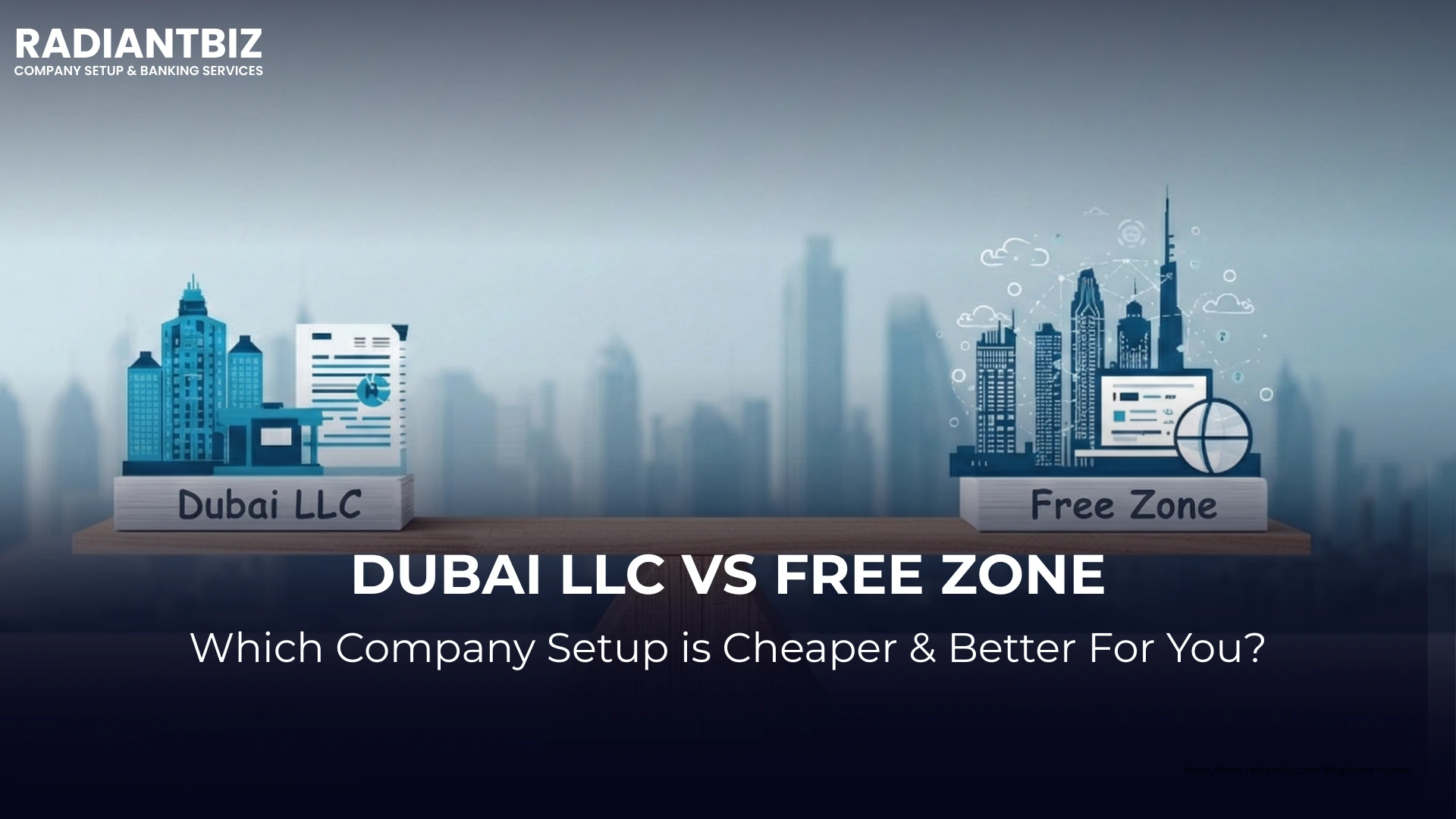Third-Party Nominee Services in UAE


Table of Contents
A system of legal contractual arrangements between directors/shareholders and a beneficial owner is known as nominee services. It is a situation in which someone other than the owner effectively administers the business and is thus designated as a director. The identical process is applied to both directors and stockholders. A Nominee Director, or ‘Third-Party’ Director, is a different person who is officially registered and acts as the offshore entity’s managing Director/Manager.As the use of a Nominee Director has the legally binding power to operate as the only authority, third-party services are generally used to safeguard the owner’s confidentiality, which can be kept off the Company Registration documents (at least on paper).The Nominee Director continues to act on the owner’s instructions and thus acts as a representative to sign all documents relating to the formation and management of the company on the owner’s behalf, ensuring that the beneficial owner remains off the documents and completely separate from the offshore corporate entity.Professional Management services include Third-Party Services, in which a managing business is hired to handle all contractual agreements, secretarial, legal, and day-to-day office needs.Nominees are most commonly used in places where corporation law demands that director and shareholder registries be made public. There are various situations in which one does not wish to be viewed as being legally obligated to a corporation with which one has a relationship. Lawyers, doctors, and most other professionals are easily targeted by antagonist forces, political opponents, or other prying entities with a vested interest in exposing or bringing down another individual.
Nominee Director
A nominated director is a person who administers the activities of a corporation but does not do so at his or her discretion. The nominee Director follows the beneficial owner’s directions, which are legally binding under a previous agreement. The owner has the authority to fire or replace the nomination Director at any time, to override his authority or decision, and to grant the Director broad or limited powers that can be put into the UAE offshore company’s bylaws. A Power of Attorney can be granted to a nominee Director, allowing them to act on your behalf and open bank accounts, deeds, and sign paperwork, among other things.
Nominee Shareholder
A Nominee Shareholder is someone who holds shares on behalf of the company’s beneficial owner but has no legal control over them. According to a Trust agreement, the beneficial owner has ultimate responsibility for the nominated shareholder and can revoke, alter, or dismiss the shareholder at any moment. A nominee shareholder can be advantageous for offshore structures since it ensures complete confidentiality if the company’s owner desires to stay anonymous.
Offshore Professional Management Services
Using a completely adaptable and capable Professional Management entity to administer your non-controlled corporation gives you the highest level of assurance and protection. A Professional Management business’s expertise includes Third-Party Services, as the management firm is responsible for all contractual agreements, secretarial, legal, and day-to-day office-related needs.
Offshore Account Signatory Services
Offshore Account Signatory Services refers to a third-party expert who acts as a nominee for an IBC or offshore structure and is authorized to sign binding agreements on its behalf. These services are for people that want complete asset protection. By appointing a third-party signature and staying unlisted as a member, shareholder, or beneficiary on a company register, one can maintain complete independence from the organization on paper.
Risks and Vulnerability
The risk of using formal nominee services is that beneficial ownership will be hidden. Extending the confirmation of the beneficial owner or creating relationships between firms that share nominations, nominee directors, and shareholders in business documents can obstruct law enforcement investigations. While the use of nominees is permitted in most jurisdictions, the nominee’s primary duty is to conceal or conceal the identity of the company’s or asset’s beneficial owner and director. A nominee can help companies get over corporate ownership constraints, hide ownership and control, get beyond court-ordered directorship restrictions, and get around rules controlling international business ownership and trade. When the numerous components of a corporate vehicle involve people from many different countries, these problems are amplified significantly. Criminals regularly construct, administer, operate, own, and operate enterprises in multiple countries, making it impossible for authorities in any one jurisdiction to obtain all necessary information about a firm. As a result, the practice’s long-term benefits are dubious, given the massive money laundering and terrorist financing concerns associated with it.
Transparency, Accountability & Enhanced Due diligence
In terms of the risk associated with the use of nominees, registrars should consider tightening control systems to stabilize nominee arrangements to promote beneficial ownership transparency, with the ultimate goal of combating corruption and money laundering, both of which have been known to hide behind nominees in the UAE and elsewhere. According to UAE law, nominees must explicitly explain themselves to the firm and its regulatory authorities. This mandatory self-identification is designed to promote transparency in the search for beneficial owners, as well as to penalize candidates who fail to appropriately disclose their status.Registrars in the UAE can require that a natural or legal person carrying shares disclose if the person owns shares as a trustee or nominee on behalf of an individual, and if so, the person’s identity as well as any transaction instructions. In addition to maintaining all firms to report the existence of nominee shareholders and directors in their framework, registrars must take the following steps to limit the exploitation of nominee shareholders and directors:
- From a compliance policy standpoint, classify all organizations having nominee arrangements as high risk.
- Examine the reason for employing a nominee arrangement as well as the nature of it.
- Using a risk-based strategy, undertake enhanced due diligence.
- Examine the nominee contract.
- Make certain that all Ultimate Beneficial Owners (UBO) have been declared and validated.
Enhanced Due Diligence (EDD) is a KYC method that digs deeper into potential business ties and uncovers risks that Customer Due Diligence misses. The entire EDD process must be meticulously documented, and authorities must have immediate access to the data. The accuracy of data sources is crucial, and specialists are typically hired to evaluate data acquired about clients.The following are examples of red signs that should prompt EDD:
- When it is obvious that a nominee is present, such as through a review of corporate documents, where the declared UBO is listed as the UBO of other licensees in the jurisdiction, and where the declared UBO is a CSP, both indicate the use of professional nominees, the entity fails to disclose nominee arrangements.
- The nominee arrangement’s purpose is unclear.
- Suspicion is raised for a nominee agreement
- Without any legitimate justification, family or close acquaintances operate as nominated shareholders or directors.
- PEPs, their colleagues, family members, or those with adverse findings are considered UBOs.
- The client is unwilling or unable to describe their company operations and corporate history, as well as refuses to collaborate or submit information and papers that are typically necessary for registration.
- Clients are forming businesses that look odd considering the age of the individual (this is particularly relevant for underage or very young customers)
- Companies that are listed under a name that implies they engage in activities or provide services that they do not.
Given how individuals have used and exploited nominee arrangements to hide their attention in legal entities and obscure true beneficial ownership, registrars must demonstrate their ability to collect and scrutinise all attempts to conceal true beneficial ownership, including through the use of nominees and complex corporate structures. As part of a remedial effort, all declared nominee arrangements should be examined, and the controls indicated above should be adopted as soon as practicable.



2.png)




.avif)